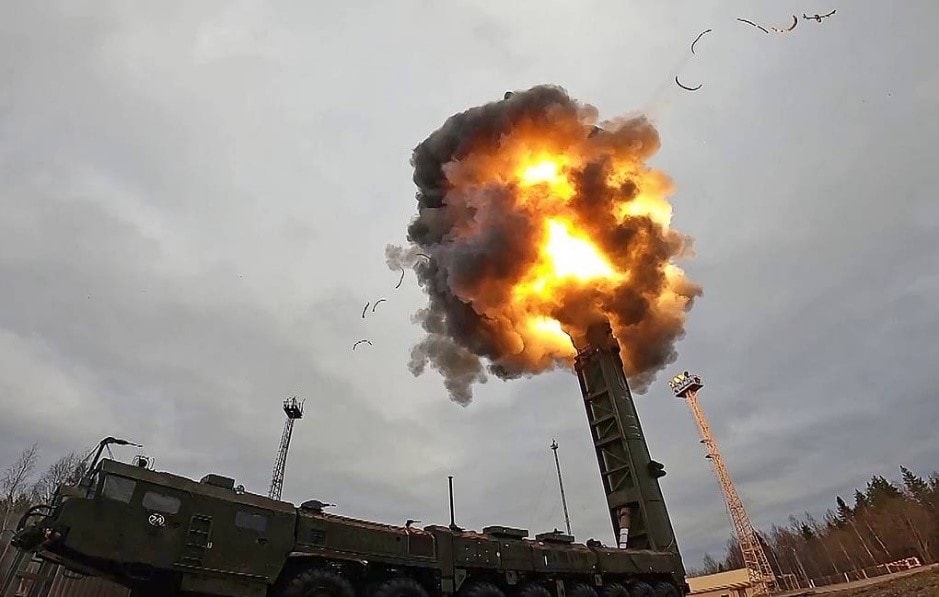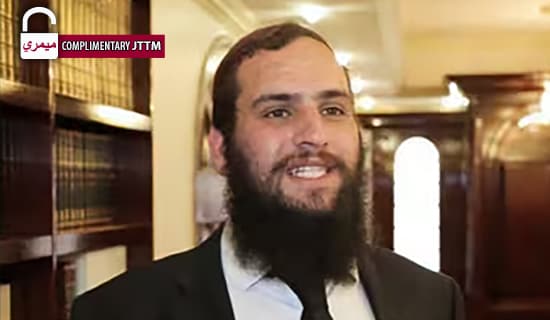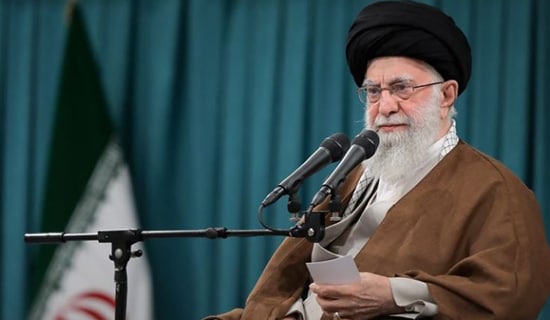During the first week of October 2006, a fierce secular-religious debate broke out in Turkey when President Ahmet Necdet Sezer and top Turkish military commanders warned of the growing threat of Islamist fundamentalism in Turkey.[1]
That week, Turkish Prime Minister Recep Tayyip Erdogan was on an official visit to the U.S. This visit was depicted as successful by U.S. and Turkish government officials, and especially by the Islamic press in Turkey, despite the ruling AKP's (Justice and Development Party) invitation to Syria-based Hamas officials,[2] Turkey's drawing closer to Iran and Syria at a time when the U.S. was trying to isolate the two countries, and the rampant anti-Americanism in Turkey.[3]
Secular circles in Turkey have a long standing perception that the U.S. has supported Prime Minister Erdogan and feared that he would exploit this trip to garner U.S. support for his presidential bid in 2007, as well as for the AKP in the run-up to the November 2007 general elections.
In the eyes of the secularists, hosting Erdogan in the White House in December 2002, at a time when he was banned from politics due to his Islamist past, opened the door to his becoming prime minister. The secular – and increasingly nationalist – circles in Turkey have accused the U.S. administration[4] of supporting Erdogan, and of creating the concept of a Turkey of "moderate Islam" that would be a model for the rest of the Muslim world. They insist that Turkey is and should remain a secular, modern, and Western republic, as envisioned by its founder Mustafa Kemal Ataturk.
In the midst of these concerns about possible U.S. support for the ruling AKP, and fears of rising Islamism in Turkey – as expressed by President Ahmet Necdet Sezer, generals, and high-ranking judicial officials – U.S. Ambassador to Ankara Ross Wilson told a press conference on October 4, 2006 that these warnings and the public debate over the danger they pose to Turkey, were a "cacophony" – leading to outrage from the country's secular circles.
While the secular media and the opposition parties have strongly criticized Ambassador Ross Wilson's remarks (in some cases even calling for his removal), reactions in the Islamist media have been mild.[5] These statements were seen by secular circles in Turkey as U.S. support for the AKP just a year in advance of general elections, and, consequently as U.S. interference in internal Turkish politics.
The following are excerpts from the Turkish media on the controversy over U.S. Ambassador Ross Wilson's statements:
Ambassador Wilson: There's Always Cacophony in Turkish Politics, Media
The mainstream, large circulation Turkish daily Hurriyet reported:[6] "U.S. Ambassador to Turkey Ross Wilson commented on the verbal sparring that has taken place over the last few days between top military and government officials over the 'threat of religious fundamentalism' in Turkey. Wilson said yesterday, 'There has always been a certain level of cacophony and noise in Turkish politics and the media.' Wilson's statements on the 'fundamentalism' controversy in Ankara came at a press conference yesterday, during which he briefed reporters on the meeting in the U.S. capital between President George W. Bush and Prime Minister Recep Tayyip Erdogan. He noted, 'There is nothing that worries me with regard to Turkey's continuation as a strong, secure, stable and secular democracy.' […]"
Oktay Eksi of Hurriyet wrote in his column:[7] "It is believed that diplomats are people whose ears hear what their mouths say, but there are many tactless ones among them who are incapable of weighing the consequences of their words. Some [diplomats] even [...] forget that they are only 'representatives.' They attempt to rule the country to which they are sent. If the real rulers of that country don't have the necessary sensitivity to protect their national pride, the meddling diplomat's job becomes easier. Then, the diplomat issues condescending statements and acts arrogantly.
"[…] The U.S. Ambassador to Ankara Ross Wilson has blundered occasionally[8] since he came here. But at a time when there is a fierce [inner] debate [in Turkey] over 'whether or not there is a threat of Islamist fundamentalism in Turkey,' to describe this [debate] – and the political debate [in Turkey] […] – as 'cacophonic,' which means a disharmonious, meaningless heap of words, amounts to disrespect towards those who were parties to this debate. […]"
"What Kind of Ambassador is This?"
Columnist Fatih Altayli of the mainstream Sabah wrote:[9] "[…] I found very odd the words of U.S. Ambassador Ross Wilson describing the speeches by the Turkish president and the chief of general staff as 'cacophony.' To be more precise: I found it insolent. I thought that this was exceeding of bounds [on the part of the Ambassador]. Ross Wilson has no right, or any authority whatsoever, to make such comments… [since] he is not a party to political discussions in Turkey. […] [nor is he] a colonial governor here… He is a diplomat. Therefore, he must use diplomatic courtesy and must know his limits. There are 'cacophonic' debates in the U.S. too. There are debates about President Bush, about Secretary of Defense Rumsfeld, and about the war in Iraq. Yet the Turkish Ambassador [to Washington] does not attempt to meddle in these debates.
"I don't know whether Ross Wilson has returned to Turkey yet. But I know that as soon as he does, he must be summoned to the [Turkish] Department of Foreign Affairs."
Ross Wilson is a "Colonial Governor, Not an Ambassador"
Columnist Hasan Pulur of the secular, mainstream Milliyet wrote:[10] "The U.S. Ambassador called the debate on fundamentalism a 'cacophony,' meaning pandemonium, noise unpleasant to the ear… Who is creating this cacophony – that is, who is doing the arguing on fundamentalism? The [Turkish] president, prime minister, chief of general staff [of the armed forces]...
"This man is not an ambassador, he is a colonial governor… Soon he might start yelling [at us] […], 'Shut up! Cut the noise!'"
Columnist Tufan Turenc of Hurriyet wrote:[11] "A man born and raised in Turkey who has climbed to the highest position of the highest court and who has been elected president says 'There is a threat of fundamentalism.' Leaders of opposition parties voice the same concerns. The heads of the [armed] forces and, then, the chief of staff of the military warn the government of the increase in Islamist activities. Moreover, these people form their opinions based on the state's intelligence reports, rather than on rumor.
"Against all this, a voice is heard all the way from Washington that belongs to someone who has known and seen Turkey for one year only: 'There is no danger of fundamentalism [meaning Islamism] in Turkey. Debate on fundamentalism is nothing but a cacophony...'. This voice belongs to U.S. Ambassador Ross Wilson…
"Is Ambassador Wilson joking, or is he exceeding his bounds? How dare this ambassador describe the words of this country's highest officials in this manner? How can he freely trample on the basic rules and principles of diplomacy? Does Mr. Ross Wilson think Turkey is a colony of the U.S, and himself the colonial governor? How can he be so arrogant?
"The silence of the AKP government and the Foreign Office is a sad thing for the Republic of Turkey. […] Naturally, the prime minister [Erdogan] is of the same opinion as the ambassador. According to him, there is no fundamentalist threat in Turkey. The prime minister must have closed his eyes and ears to everything that has been happening [in Turkey] since he came to power. Otherwise, he would have seen the murders [by radical Islamists] in the high court, the catastrophe in the Ismailaga Mosque, and the 'liberated' [i.e. autonomous] areas ruled by religious [Islamist] sects.[12] He [Erdogan] defines this as extremism but not Islamism […].
"[…] Washington should know that the rising anti-Americanism in Turkey cannot be curbed with such an ambassador. Unless the U.S. understands the sensitivities of the Turkish people on the issues of terrorism and Islamism, it cannot regain the trust that [it has] lost in this land. […]"
Islamist Paper: U.S. State Dept. Says "Wilson Does a Great Job"
The Islamist daily Yeni Safak, which is known to be the unofficial mouthpiece of the AKP government, reported:[13] "U.S. State Department spokesman Sean McCormack said that U.S. Ambassador Ross Wilson is doing a good job in Ankara. When asked to comment on the call by the Free Party leader Yasar Okuyan to declare Wilson persona non grata, McCormack said that he was not fully informed about the subject and that he had 'not yet discussed it with Ross.' He added, 'Ross Wilson does a great job in Turkey as ambassador.'"
Turkish Foreign Minister Gul on Bush-Erdogan Meeting: Extraordinary, Exceeded Our Expectations
Columnist Mustafa Karaalioglu of the Islamist daily Yeni Safak wrote about the Bush-Erdogan meeting in Washington:[14] "[…] Naturally, the most important issue was to see what the American attitude towards the AKP government was, on the eve of the [Turkish] presidential elections. […] The quality of the [U.S.-AKP] relationship was the most important off-agenda issue during Erdogan's visit.
"[Despite] […] the growing speculation that Washington no longer viewed the AKP in a positive light […] the first sign of the truth [about the U.S.-AKP relationship] was that the meeting took much longer than expected. After the meeting, Bush called Erdogan 'my friend and a man of peace,' and announced that they were in agreement on all the issues. No doubt this was an even stronger sign.
"After the press conference, I spoke to [Turkish] Foreign Minister Abdullah Gul […]. He said, 'I am not exaggerating, this was an extraordinary meeting. I can say that it was the best ever. [...] Believe me, it was a meeting beyond our expectations.' During the meeting the dialogue was friendly and Bush used the sentence, 'Only strategic partners can have talks like this.' […]
"There was a surprise guest in the audience during Erdogan's address [on October 3, 2006] at Georgetown University: World Bank President Paul Wolfowitz. After the [rejection by the Turkish parliament of the] March 1 motion [that would have allowed the U.S. to open a front against Iraq from Turkish soil][15] had cast a shadow on U.S.-Turkey relations, Wolfowitz – the 'most hawkish' of the hawks in Washington – had overreacted and had used […] disappointing words. From this standpoint, it was interesting that Wolfowitz came to listen to Erdogan. […] According to the prime minister's advisor, Egemen Bagis […] this was one of the signs of the beginning of a new era between the two countries. […]"
Secular Columnist: "Bush Gave Both Legitimacy and International Cover to Erdogan"
Cengiz Candar, a Turkish columnist for the conservative daily Bugun, wrote in the English-language daily The New Anatolian:[16]
"Prime Minister Erdogan is once again at the White House. No matter how turbulent Turkish-U.S. relations have become, it is an impressive record for Turkey's prime minister to be received at the White House four times in less than three years.
"The first time he stepped into the U.S. president's office in December 2003 [sic], Erdogan was not prime minister. He wasn't even a member of parliament. On the contrary, he was under threat of prosecution in Ankara […] He [Erdogan] […] had been barred from running [for elected office] […] And that was exactly why U.S. President George W. Bush – through the efforts and effective counsel of the pro-Turkey influential actor in the U.S. administration Deputy Defense Secretary Paul Wolfowitz – received Erdogan at the White House. […]
"By receiving Erdogan in Washington before anyone else in the government, Bush opened the way for him to climb to the post of prime minister of Turkey – which he did within three months of his Washington visit.
"It was Bush who gave both legitimacy and international cover to Erdogan. He helped his ascent to power by implicitly tying the hands of those in the Ankara establishment who wished and would have liked to have seen Erdogan behind bars. […]
"That was not of course, a free lunch. Bush needed Turkey's active support and even involvement for the looming war in Iraq that he was determined to wage. Despite the March 1, 2003 debacle, which left a bitter taste and a scar in Turkey-U.S. relations, the U.S. administration exempted Erdogan [from any responsibility] for it. […]
Endnotes:
[1] See MEMRI Special Dispatch No. 1313, "Turkish President and Military Warn of Increasing Islamism in Turkey, Point to AKP Government," October 10, 2006, Turkish President and Military Warn of Increasing Islamism in Turkey, Point to AKP Government .
[2] See MEMRI Special Dispatch No. 1114, "Hamas Visit to Turkey Deepens Secular-Islamist Rift," March 14, 2006, Hamas Visit to Turkey Deepens Secular-Islamist Rift .
[3] See MEMRI Special Dispatch No. 870, "Anti-Americanism in the Turkish Media," February 25, 2005,
Anti-Americanism in the Turkish Media; MEMRI Special Dispatch No. 1147, "Turkey's Islamist Dailies Spread Anti-American, Antisemitic Incitement," April 26, 2006,
Turkey's Islamist Dailies Spread Anti-American, Antisemitic Incitement .
[4] Among them was then-Deputy Secretary of Defense Paul Wolfowitz and then-Chairman of the Defense Policy Board Richard Perle.
[5] Ambassador Ross Wilson had further said that he saw nothing on the horizon that particularly worried him.
[6] Hurriyet (Turkey), October 4, 2006.
[7 Hurriyet (Turkey), October 5, 2006.
[8] See MEMRI Special Dispatch No. 1114, "Hamas Visit to Turkey Deepens Secular-Islamist Rift," March 14, 2006, Hamas Visit to Turkey Deepens Secular-Islamist Rift.
[9] Sabah (Turkey), October 5, 2006.
[10] Milliyet (Turkey), October 8, 2006.
[11] Hurriyet (Turkey), October 6, 2006.
[12] In May 2006, an Islamist attorney opened fire, shouting "Allahu Akbar," inside Turkey's Supreme Court to protest the court's decision against the headscarf; one judge was killed and several judges and others were wounded. In September 2006, a gunman shot and killed the imam of the Ismailaga Mosque, which is situated in an Islamist area of Istanbul. The gunman was lynched by worshippers; no action was taken against them and no arrests were made. As a result of the incident, the Ismailaga sect's activities were exposed; these included the practice of underground shari'a trials presided over by a qadi (Islamic judge).
[13] Yeni Safak (Turkey), October 13, 2006.
[14] Yeni Safak (Turkey), October 3, 2006.
[15] See MEMRI Special Dispatch No. 874, "Turkish Media on the Anniversary of the March 1, 2003 Parliamentary Resolution Not Allowing U.S. Troops to Open a Northern Front against Iraq from Turkish Soil," March 8, 2005, Turkish Media on the Anniversary of the March 1, 2003 Parliamentary Resolution Not Allowing U.S. Troops to Open a Northern Front against Iraq from Turkish Soil.
[16] The New Anatolian (Turkey), October 5, 2006.








